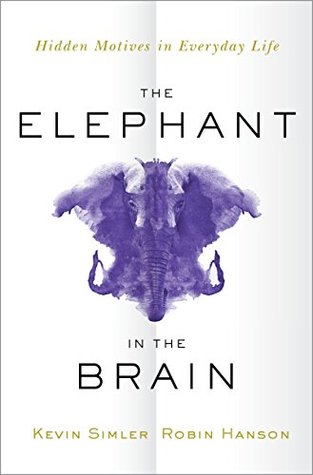It’s not simply because laughter is involuntary, outside our conscious control. Flinching, for example, is also involuntary, and yet we understand perfectly well why we do it: to protect ourselves from getting hit. Thus our ignorance about laughter needs further explanation. As we’ve hinted, such ignorance may be strategic; our brains may be trying to hide something. And yet the meaning of laughter—“We’re playing!”—seems entirely innocent and aboveboard.
Welcome back. Just a moment while we sign you in to your Goodreads account.


